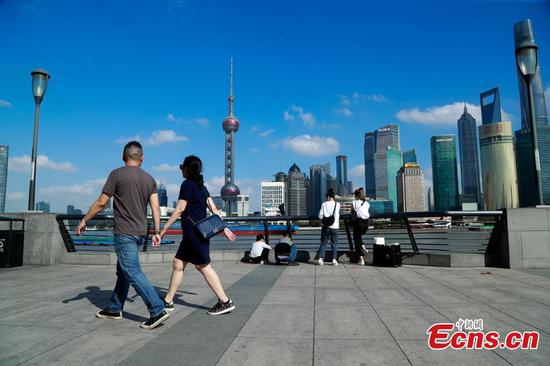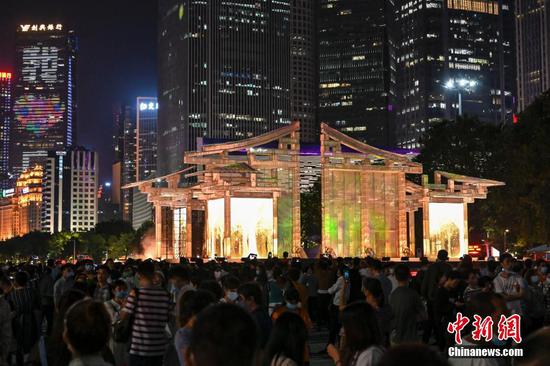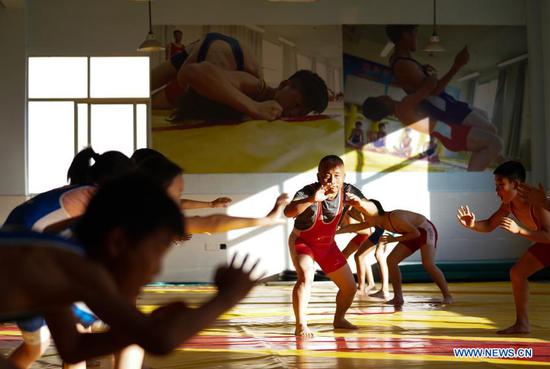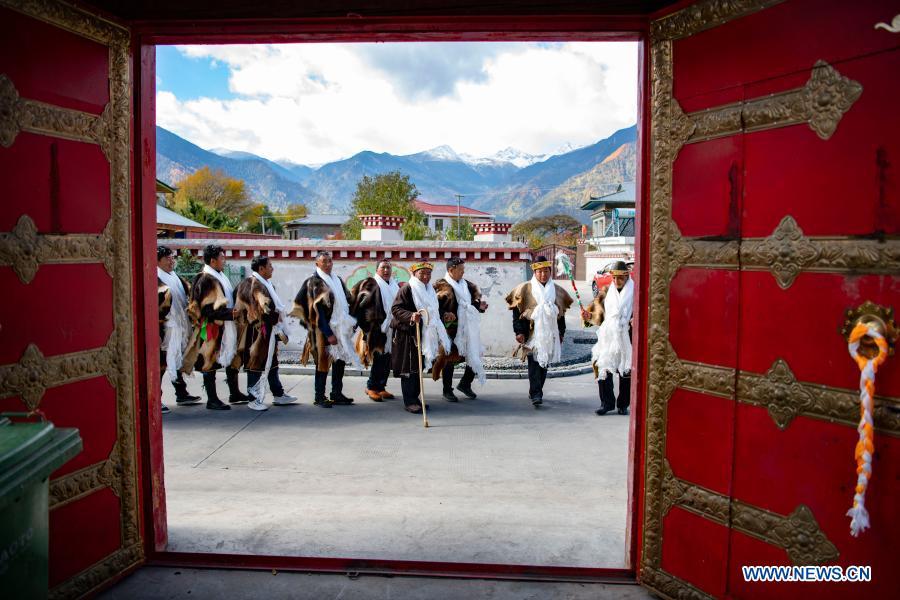
Villagers celebrate their special New Year, known as the Gongbo New Year in Baji Village of Bayi District in Nyingchi, southwest China's Tibet Autonomous Region, Nov. 18, 2020. The local people follow the tradition to celebrate the Gongbo New Year on Oct. 1 by the Tibetan calendar, which fell on Nov. 16 this year. On the morning of Gongbo New Year's day, each Tibetan family worships the goddess of the harvest, with gifts and wine. They also sing and dance during the ritual. According to a local legend, the tradition comes from an event in ancient times when a Tibetan ruler recruited the Gongbo tribe of the Nyingchi area to fight his enemies. The ruler brought the New Year's Day forward to Oct. 1, and ordered the soldiers to have a good celebration on the eve of the war so as to arouse their morale. This custom has been handed down since then. (Xinhua/Purbu Zhaxi)

Villagers celebrate their special New Year, known as the Gongbo New Year in Baji Village of Bayi District in Nyingchi, southwest China's Tibet Autonomous Region, Nov. 17, 2020. The local people follow the tradition to celebrate the Gongbo New Year on Oct. 1 by the Tibetan calendar, which fell on Nov. 16 this year. On the morning of Gongbo New Year's day, each Tibetan family worships the goddess of the harvest, with gifts and wine. They also sing and dance during the ritual. According to a local legend, the tradition comes from an event in ancient times when a Tibetan ruler recruited the Gongbo tribe of the Nyingchi area to fight his enemies. The ruler brought the New Year's Day forward to Oct. 1, and ordered the soldiers to have a good celebration on the eve of the war so as to arouse their morale. This custom has been handed down since then. (Xinhua/Purbu Zhaxi)
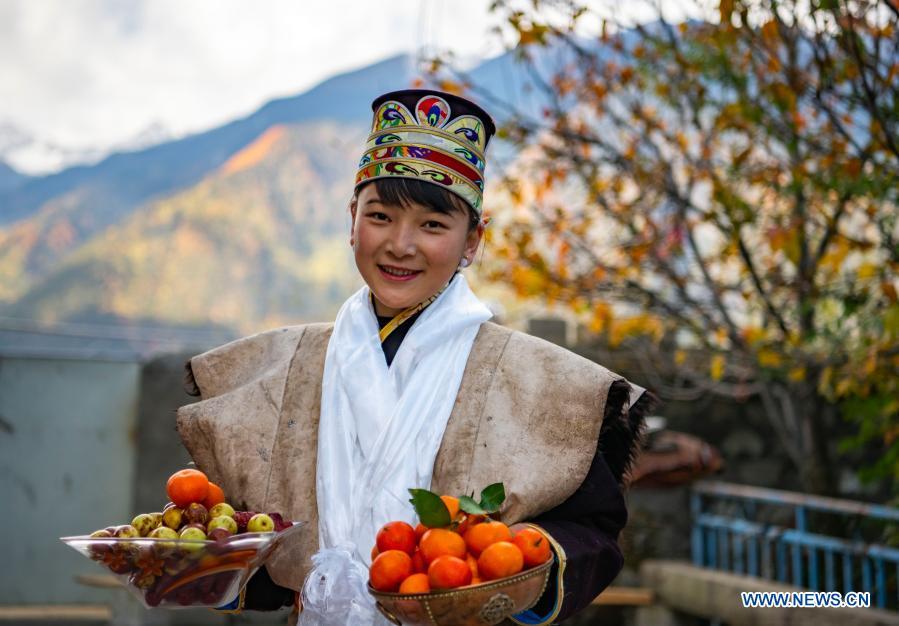
A villager celebrates the special New Year, known as the Gongbo New Year in Baji Village of Bayi District in Nyingchi, southwest China's Tibet Autonomous Region, Nov. 18, 2020. The local people follow the tradition to celebrate the Gongbo New Year on Oct. 1 by the Tibetan calendar, which fell on Nov. 16 this year. On the morning of Gongbo New Year's day, each Tibetan family worships the goddess of the harvest, with gifts and wine. They also sing and dance during the ritual. According to a local legend, the tradition comes from an event in ancient times when a Tibetan ruler recruited the Gongbo tribe of the Nyingchi area to fight his enemies. The ruler brought the New Year's Day forward to Oct. 1, and ordered the soldiers to have a good celebration on the eve of the war so as to arouse their morale. This custom has been handed down since then. (Xinhua/Purbu Zhaxi)
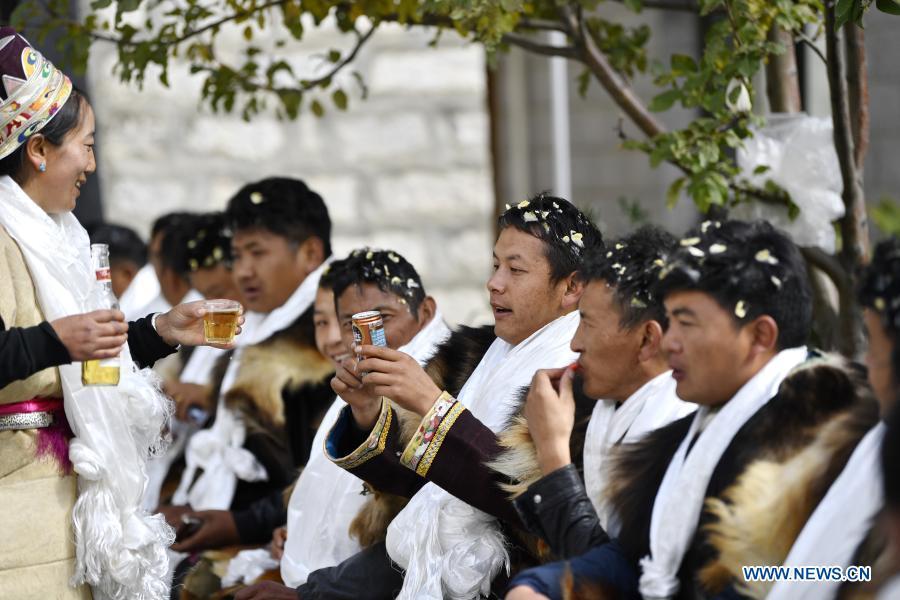
Villagers celebrate their special New Year, known as the Gongbo New Year in Baji Village of Bayi District in Nyingchi, southwest China's Tibet Autonomous Region, Nov. 18, 2020. The local people follow the tradition to celebrate the Gongbo New Year on Oct. 1 by the Tibetan calendar, which fell on Nov. 16 this year. On the morning of Gongbo New Year's day, each Tibetan family worships the goddess of the harvest, with gifts and wine. They also sing and dance during the ritual. According to a local legend, the tradition comes from an event in ancient times when a Tibetan ruler recruited the Gongbo tribe of the Nyingchi area to fight his enemies. The ruler brought the New Year's Day forward to Oct. 1, and ordered the soldiers to have a good celebration on the eve of the war so as to arouse their morale. This custom has been handed down since then. (Xinhua/Zhang Rufeng)
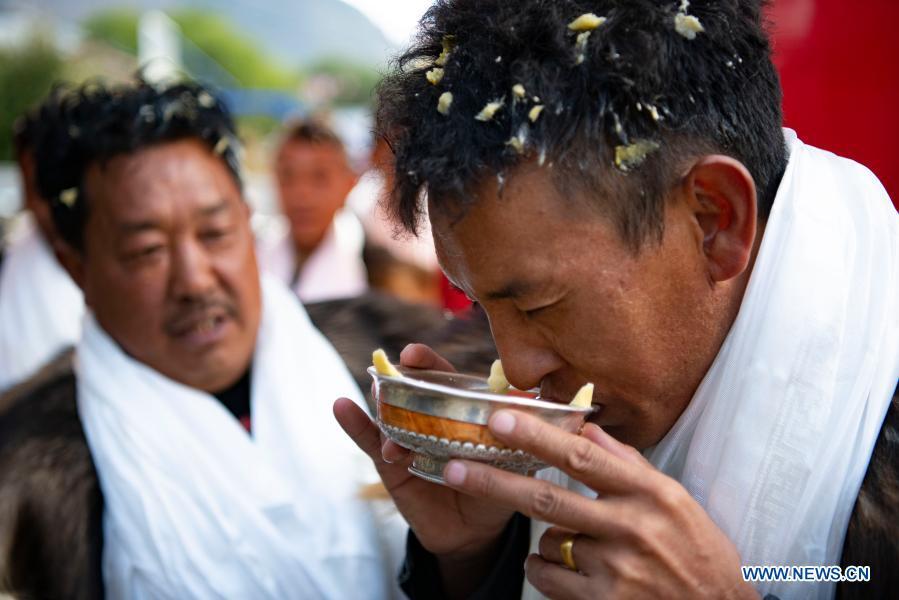
Villagers celebrate their special New Year, known as the Gongbo New Year in Baji Village of Bayi District in Nyingchi, southwest China's Tibet Autonomous Region, Nov. 18, 2020. The local people follow the tradition to celebrate the Gongbo New Year on Oct. 1 by the Tibetan calendar, which fell on Nov. 16 this year. On the morning of Gongbo New Year's day, each Tibetan family worships the goddess of the harvest, with gifts and wine. They also sing and dance during the ritual. According to a local legend, the tradition comes from an event in ancient times when a Tibetan ruler recruited the Gongbo tribe of the Nyingchi area to fight his enemies. The ruler brought the New Year's Day forward to Oct. 1, and ordered the soldiers to have a good celebration on the eve of the war so as to arouse their morale. This custom has been handed down since then. (Xinhua/Purbu Zhaxi)
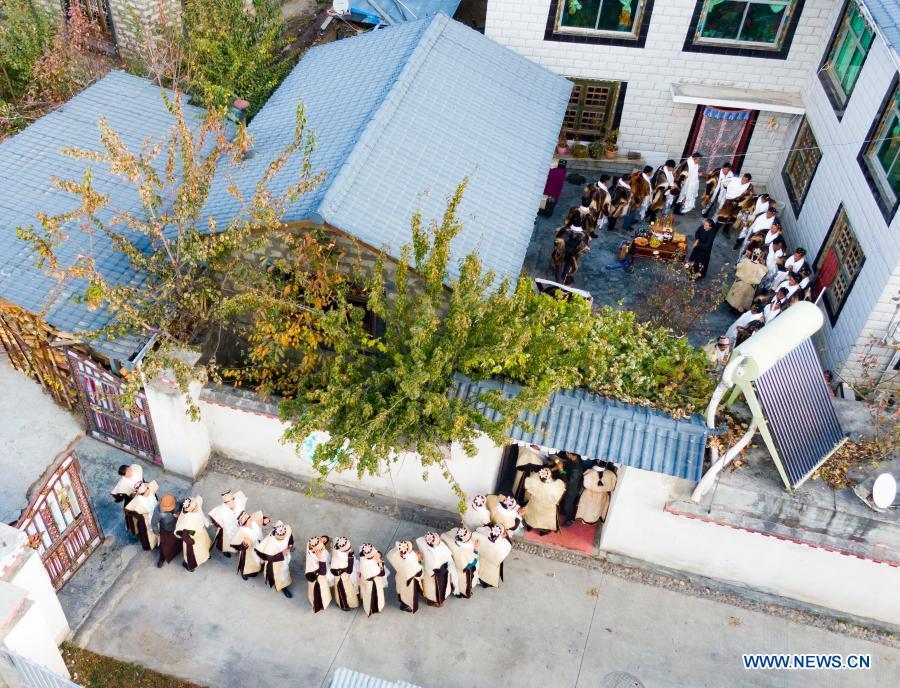
Villagers celebrate their special New Year, known as the Gongbo New Year in Baji Village of Bayi District in Nyingchi, southwest China's Tibet Autonomous Region, Nov. 18, 2020. The local people follow the tradition to celebrate the Gongbo New Year on Oct. 1 by the Tibetan calendar, which fell on Nov. 16 this year. On the morning of Gongbo New Year's day, each Tibetan family worships the goddess of the harvest, with gifts and wine. They also sing and dance during the ritual. According to a local legend, the tradition comes from an event in ancient times when a Tibetan ruler recruited the Gongbo tribe of the Nyingchi area to fight his enemies. The ruler brought the New Year's Day forward to Oct. 1, and ordered the soldiers to have a good celebration on the eve of the war so as to arouse their morale. This custom has been handed down since then. (Xinhua/Purbu Zhaxi)











